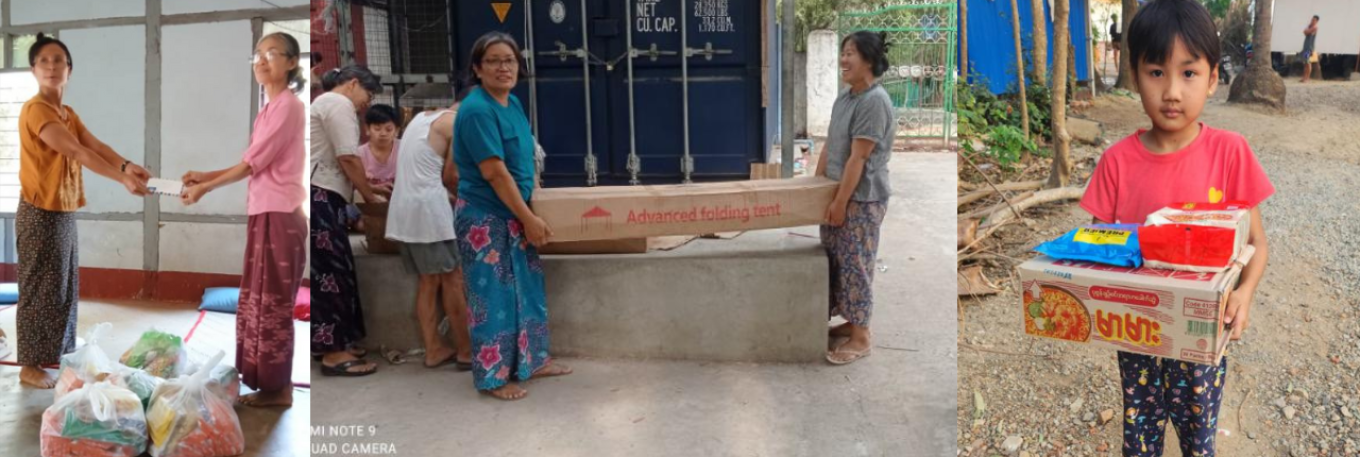You are here

Update on Myanmar post-earthquake
We are thankful for our members who are working hard to bring about stability, provisions and hope to individuals and families affected by the earthquake in March.
World Humanitarian Day on 19 August, is an observance that not only honours people who provide humanitarian assistance, but also seeks to raise awareness of the ongoing challenges faced by millions of people affected by crises around the world. As a grassroots, member-led organisation, we mobilise people to come together, address issues in their communities, and take action to advocate for change. This also means our members are often amongst the first to provide support when crises and disasters occur.
This was the case when an earthquake occurred in March 2025 in Myanmar, northwest Southeast Asia. Myanmar was already suffering from one of the world’s longest-running civil wars when a 7.9 earthquake struck, with the epicentre close to Mandalay, the country’s second-largest city. It was the most powerful earthquake to strike the country since 1912, with over 5,000 people dying as a result.
Naw Laldini, MU Provincial Community Development Coordinator (PCDC) in Myanmar, recently spoke with Elizabete Hopkins, MU Global Programmes Officer, discussing the impact of the earthquake and the efforts MU members have undertaken in the following months. We are thankful for our members who are working hard to bring about stability, provisions and hope to individuals and families affected.
In the Mandalay diocese, 30 member houses and 6 churches were damaged, while in the Toungoo diocese, 270 houses and 46 churches were affected, with some roofs and walls destroyed. Whilst there were no fatalities in Toungoo, the earthquake affected Mandalay more severely, resulting in multiple deaths.
Laldini has been working alongside members to provide support by distributing essential items and temporary shelters. She described how volunteers help to coordinate aid to affected members. There are approximately 15 active Mothers’ Union volunteers in Mandalay, and between 20-25 volunteers in Toungoo.
Items such as essential clothing, pure water, medicine, and food have been distributed. Tents have also been provided to people without shelter, with church members staying in church compounds. Trauma healing workshops are also being run to support survivors and families further. Laldini shared a request from a bishop in Mandalay for more trauma healing training for the community, which they plan to pursue with funding support.
With over 11,000 MU members in Myanmar, there is often difficulty contacting in certain areas due to security issues. Whilst communication is expected to improve when internet access is restored at the border with India, Laldini has been reviewing safeguarding measures for volunteers in potentially unsafe areas. She has met with the Diocesan President and committee to establish guidelines, including limiting access to dangerous areas and assigning responsible individuals who know the location well. This approach ensures volunteers are safe whilst still providing the necessary support.
The response of our members in Myanmar reflects the very heart of our organisation: to be present where the need is greatest, living out faith in action. The road to recovery is long, with thousands needing stable housing and many more carrying the invisible wounds of trauma. As we continue to support the communities affected by the earthquake, we ask for prayers for all survivors and our members volunteering to bring hope for the future.
